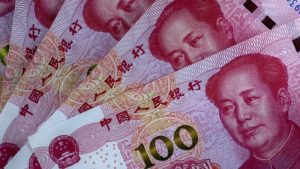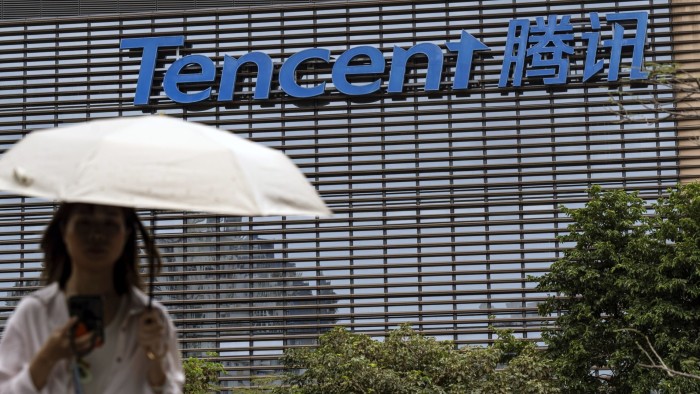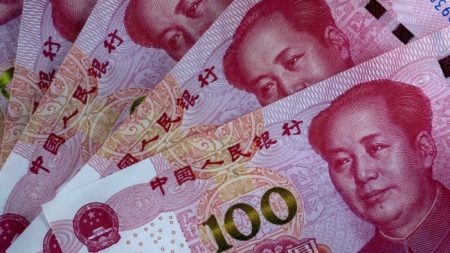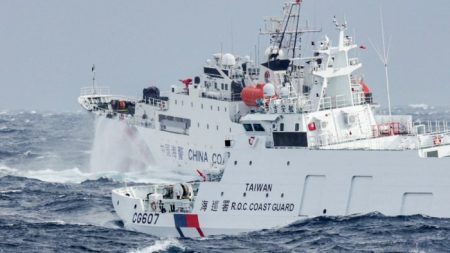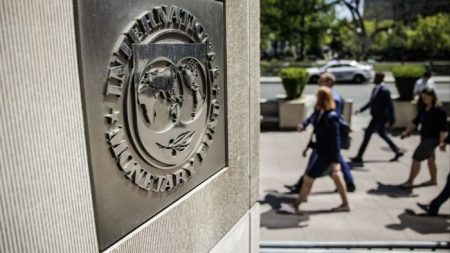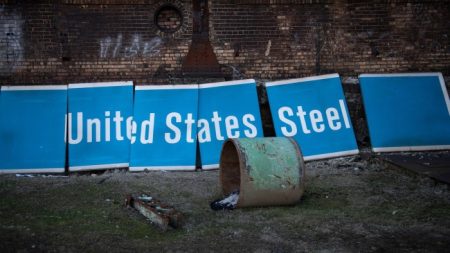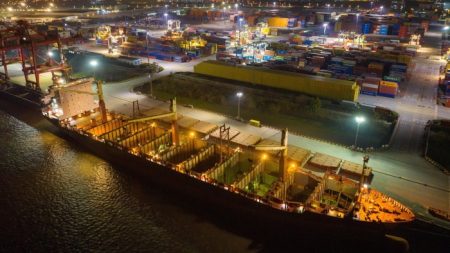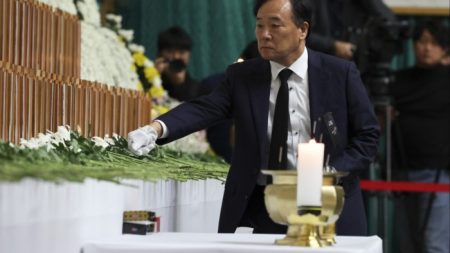Stay informed with free updates
Simply sign up to the US-China relations myFT Digest — delivered directly to your inbox.
Tech group Tencent and the world’s dominant battery maker CATL are among a swath of Chinese companies that have been designated by the Pentagon as having alleged military links, in a move that sent the industry giants’ shares tumbling.
Tencent’s US-listed shares closed down 7.8 per cent following the news and were down the same amount in Hong Kong trading on Tuesday. The company is China’s largest by market capitalisation.
Shares in CATL fell as much as 6 per cent in Shenzhen, their biggest decline in about three months. CATL is an important supplier to US carmaker Tesla and has a global EV battery market share of about 38 per cent.
The list is part of Washington’s broad efforts to counteract the rise of China as a military superpower. The Pentagon cannot contract with companies on the list from June 2026, and from 2027 will not be able to procure goods or services that include those companies in their supply chains.
The US defence department has described the list as a way to highlight and counter what it calls China’s “military-civil fusion strategy”, which bolsters the Chinese military’s modernisation efforts by ensuring it can acquire advanced technology from Chinese companies, universities and research programmes that are masked as civilian entities.
The US has imposed multiple rounds of sweeping export controls designed to curtail China’s ability to make an advanced semiconductor industry and make it more difficult for Beijing to develop artificial intelligence for military use.
In retaliation, Beijing has been tightening its own export controls. Last month it banned shipments to the US of certain minerals and metals used in semiconductor manufacturing and military hardware.
China’s foreign affairs ministry said on Tuesday that Beijing had “always firmly opposed the US’s generalisation of the concept of national security, the establishment of discriminatory lists of various names, [and] the unreasonable suppression of Chinese companies”. It warned China would “resolutely safeguard the legitimate rights and interests of Chinese companies and safeguard its legitimate right to development”.
Being added to the Pentagon’s Chinese military companies blacklist has no direct legal ramifications and does not result in sanctions. However, it does carry reputational risks.
Tencent’s addition to the list “is clearly a mistake”, a company spokesperson said.
“We are not a military company or supplier. Unlike sanctions or export controls, this listing has no impact on our business. We will nonetheless work with the Department of Defense to address any misunderstanding,” the spokesperson added.
CATL, which has been working with Tesla and Ford to license its battery manufacturing technology for factories in the US, also called its inclusion on the list “a mistake”.
“CATL is not engaged in any military related activities”, the company said. “We welcome responsible discourse on our business operations and take questions about our business seriously.”
Chip manufacturer ChangXin Memory Technologies, drone maker Autel Robotics and IT equipment maker Quectel Wireless Solutions were also added to the list.
Cosco, one of China’s largest shipping companies, joined the list for the first time. Several of the group’s ferries, along with those of other commercial companies, have participated in People’s Liberation Army exercises to practise an amphibious invasion of Taiwan, according to ship tracking data and appearances in Chinese state media reports.
Beijing in recent years has been requiring civilian shipping companies to build their new vessels to military-capable standards. The use of civilian ships is a key part of the PLA’s strategy because it lacks sufficient capacity of its own to transport troops and armoured vehicles across the Taiwan Strait.
Additional reporting by Joe Leahy in Beijing and Kathrin Hille in Taipei
Read the full article here

